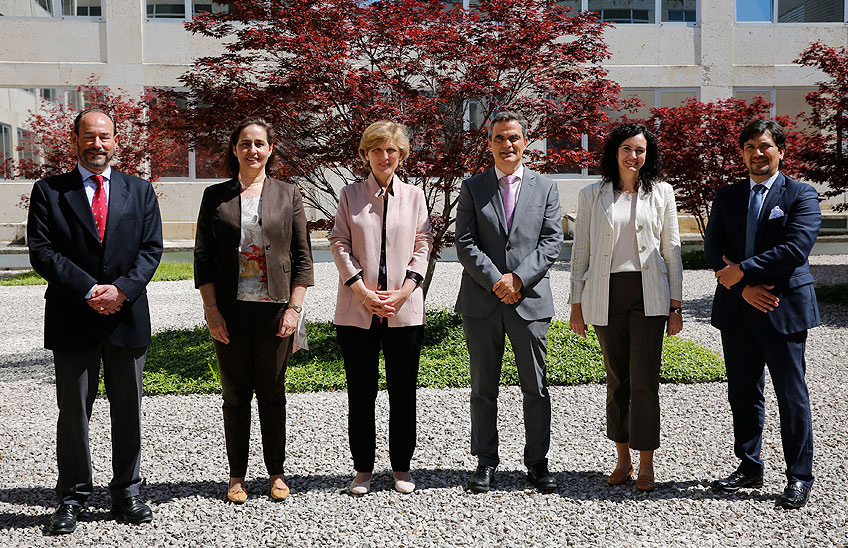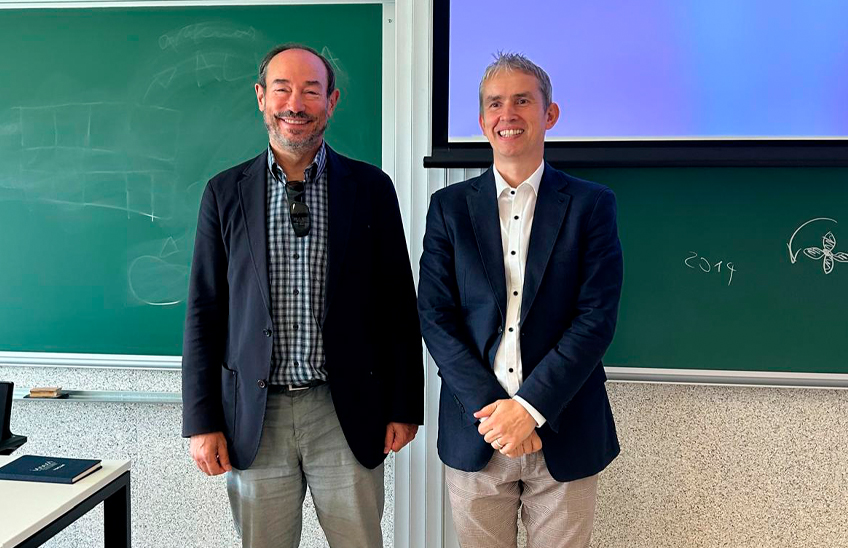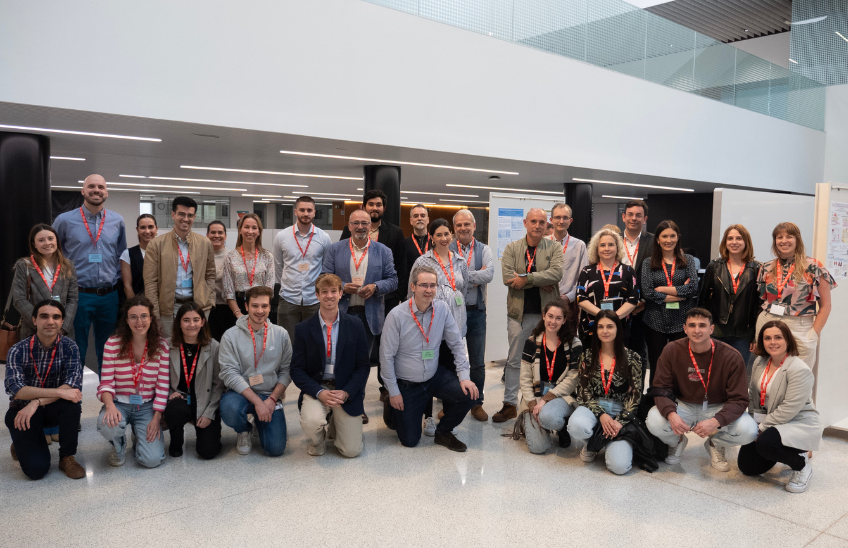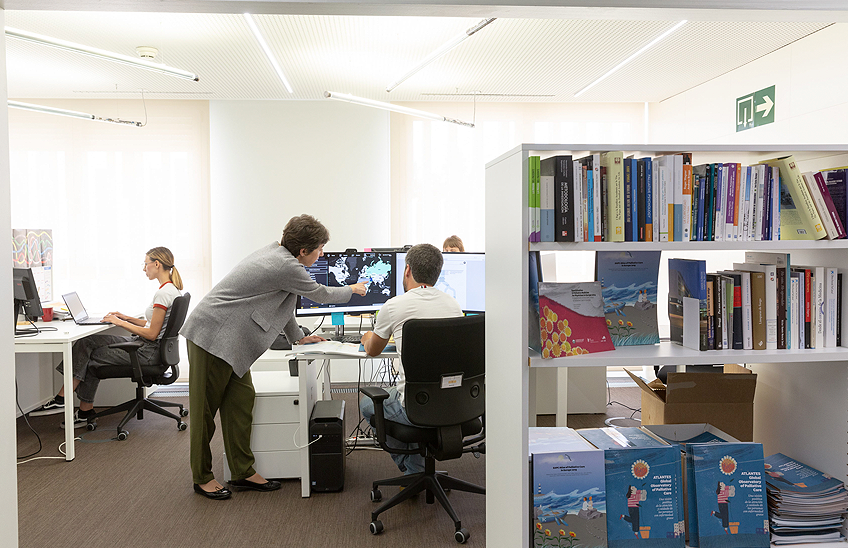Experts in dataand artificial intelligence present their research at the University in search of solutions to current challenges, such as personalised medicine and Industry 4.0.
Jesús López Fidalgo, director of the high schoolScience of dataand Artificial Intelligence: "We need millions of people trained in the science of datain the world and we only have hundreds of thousands".

PhotoManuelCastells/From left to right, the director of the Institute of Science of data and Artificial Intelligence of the University of Navarra, Jesús López Fidalgo; Pilar Concejo, director of training and management of Talent at BBVA, the president María Iraburu; Guzmán Garmendia, director general of Telecommunications and Digitalization of the Government of Navarra; the Vice President of research and Sustainability, Paloma Grau and framework Bonilla, discipline leader Advanced Analytics of BBVA.
09 | 05 | 2022
The II conferenceof Science of the dataand Artificial Intelligence brings together researchers from different fields at the University of Navarra. The projects to be presented address the application of the science of data to sectors as diverse and requiring complex and multidisciplinary approaches, such as future medicine or industry 4.0. From neuroscience, psychiatry, tumour treatment (biological cell growth factors), prediction of mortality by Covid-19, machine learning applied to models of credit , sensory gloves, market pricing, treatment of atrial fibrillation or assessmentof pollutants in indoor spaces, to name a few examples.
The conference are organized by the high school of Science of data and Artificial Intelligence of the University of Navarra (DATAI), which since its creation in 2020 counts with the banking entity BBVA as partner strategic , entity that considers big data as a nuclear science for social innovation. Its director, the Full Professor Jesús López Fidalgo, has highlighted the importance of the training and the demand for professional profiles in this subject. "Millions of people trained in data science are needed in the world and we only have hundreds of thousands".
The president of the University of Navarra, María Iraburu, inaugurated the conference and pointed out the importance of the university being "at the birth of new things". "We are looking for a research that allows us to know the needs of the business, of banking, of the public administration, etc. The university cannot be oblivious to the vicissitudes of society," she said. María Iraburu pointed out that in this process the university contributes multidisciplinarity, knowledge rigorous and offers all this science at the service of society and the individual.
María Iraburu was accompanied by director general of Telecommunications and Digitalization of the Government of Navarra, Guzmán Garmendia; Pilar Concejo, director of training and management Talent at BBVA, who highlighted the drive for research and training in Big Data, a science that is considered the engine of innovation for the bank; framework Bonilla, discipline leader Advanced Analytics at BBVA; the Vice President of research and Sustainability, Paloma Grau; and the Full Professor and director of the high school of data Science and Artificial Intelligence of the University, Jesús López Fidalgo.
At one point in his speech, Jesús López Fidalgo referred reference letterto a study published by Nature to point out that in 2030 artificial intelligence will influence more than 8.5 billion people and, according to the same study, the science of the datawill be a determining factor in the developmentof the UN's Sustainable Development Goals development. "Society requires researchand trainingprofessionals with expertise in the science of dataat all levels, from children to the elderly".
A 150,000 km circuit of connections in our brain
Among the experts who will speak at conference are José Antonio Lozano, director of the Severo Ochoa BCAM center in the Basque Country; Daniel Peña, formerPresident of the Universidad Carlos III; and Pedro Larrañaga, Full Professor of Computer Science and Artificial Intelligence at the Universidad Politécnica de Madrid (UPM) and member of the committee Superior de Inteligencia Artificial de España.
Larrañaga has been in charge of presenting the opening discussion paperof the conferenceand has approached those present the researchand application of Bayesian networks, a prediction methodology that allows to find the causal relationship between different variables, applied to neuroscience and industry 4.0, from the service sector to the public administration. Among other issues, Larrañaga talked about how the science of datacan help in the treatment of diseases such as Parkinson's: "A healthy brain has a averageof 86,000 million neurons whose connections generate a circuit of 150,000 km in our brain. And we study the information that is generated, to collaborate in the correct medical diagnosis and in improving people's health," he said.



